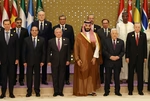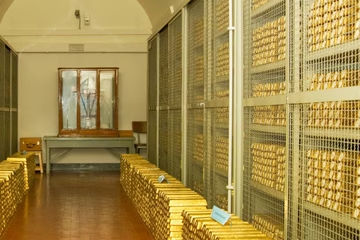Bosnian prime minister: Bosnia will not interfere in Belgrade-Pristina dialogue

Considering the calls to recognise Kosovo's independence, I said Bosnia did not do so because there is no consensus on the matter, and unlike its neighbours, Bosnia does not want to interfere in internal affairs of neighbouring countries, Bosnia's prime minister Denis Zvizdic said on Tuesday, after the Berlin summit.
Oglas
“We'll support the agreement between Belgrade and Pristina that will abide by international legal norms. This agreement must not have consequences for the region or Bosnia and Herzegovina,” Zvizdic said.
The prime minister attended the Berlin Summit organised by German Chancellor Angela Merkel and French President Emmanual Macron in the German capital on Monday. Merkel and Macron invited representatives from the Western Balkans countries, as well as from Croatia, Slovenia, and the EU to discuss stability and development of the region.
Zvizdic argued that the situation is not the hardest for Belgrade and Pristina, but Bosnia, because some Bosnian politicians are connecting the Kosovo situation with Bosnia's Serb-dominated entity of Republika Srpska (RS), publically threatening with the RS' secession.
Oglas
“Of course I condemned the anti-Constitutional actions and behaviour of those drawing some new borders over the territories of sovereign states of Bosnia and Montenegro and accession of territories to the map of Serbia,” the Council of Ministers Chairman noted.
Days before the meeting, the Serb member of Bosnia's tripartite Presidency, Milorad Dodik, as well as Serbian President Aleksandar Vucic voiced their disagreements with the fact that Zvizdic was invited to it, and not Dodik. They argued that Zvizdic is the outgoing Council of Minister Chairman and that Dodik was the newly elected Presidency member thus having greater legitimacy of representing Bosnia at the meeting.
“My appearance at the summit was logical, but I can understand the populist statements of some Bosnian politicians. However, I'm surprised by my Serbian colleagues who oversaw the face that I was authorised to protect Bosnia's and not Serbia's sovereignty and integrity,” he pointed out.
The prime minister added that Serbia had its representatives in charge of protecting its interests.
Oglas
He rated the five-hour meeting as very important, especially at a time when the region is facing severe challenges like the EU accession process and negative trends threatening regional stability and the reconciliation process. In this regard, he said the situation now is no better than what it used to be some six months ago.
Kakvo je tvoje mišljenje o ovome?
Učestvuj u diskusiji ili pročitaj komentare
Oglas
Kakvo je tvoje mišljenje o ovome?
Učestvuj u diskusiji ili pročitaj komentare
Oglas





 Srbija
Srbija
 Hrvatska
Hrvatska
 Slovenija
Slovenija



























































